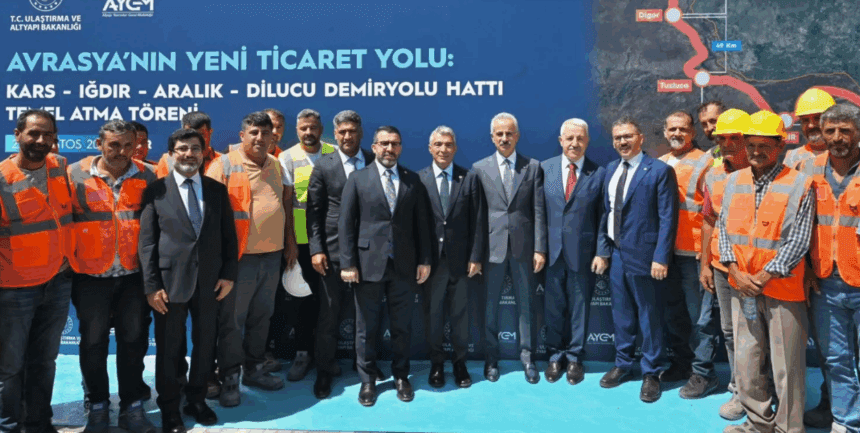Turkey has begun construction on a 224-kilometer railway linking its eastern Kars province to Azerbaijan’s Nakhchivan exclave, in a move closely tied to the new South Caucasus peace framework brokered by Washington.
At a ceremony on Friday, Transport Minister Abdulkadir Uraloğlu said the line will run from the Dilucu border gate into Nakhchivan and connect with Kars, with an annual capacity of 5.5 million passengers and 15 million metric tons of cargo. He argued the project would “open borders and normalize ties in the region.”
The railway is part of a wider transit corridor advanced under the U.S.-brokered Armenia–Azerbaijan peace agreement signed this month at the White House, where the two sides agreed to normalize relations after decades of hostility. A key element of the accord grants the United States exclusive development and management rights over the Zangezur Corridor in southern Armenia for 99 years.
The route, described in government messaging as the “Trump Route for International Peace and Prosperity,” will connect mainland Azerbaijan with its Nakhchivan exclave and onward to Turkey, creating a continuous transport and energy corridor stretching from the Caspian Basin to Europe.
Turkey has already secured €2.4 billion ($2.8 billion) in green financing for its section of the railway from lenders including Japan’s MUFG Bank, Sweden’s EKN, Austria’s OeKB, and a unit of the Islamic Development Bank.
While Ankara and Baku hail the corridor as a breakthrough for trade and diplomacy, the agreement has stirred unease. Iran has voiced opposition, warning that it sidelines its transit role in the region, while Russia risks losing influence in Armenia as Washington assumes a dominant role in shaping regional infrastructure.
Once the Armenian, Azerbaijani, and Turkish sections are complete, the corridor is expected to form part of a faster China-to-Europe trade route, integrating with the Middle Corridor through the Caucasus.



